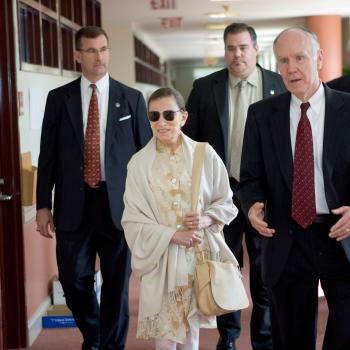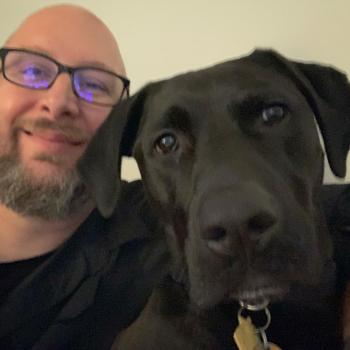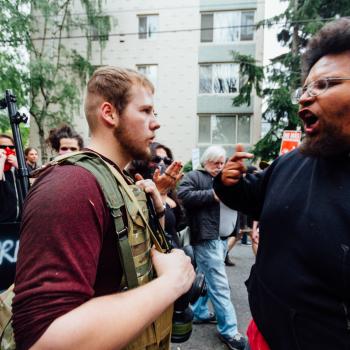Deliver me, O LORD
from lying lips,
from a deceitful tongue-Ps. 120:2
Words have meaning.
About twenty years ago, I took a year-long statistics and experimental design course that changed how I viewed truth forever. The instructor not only showed us through real-world examples how the same set of data could lead to multiple conflicting conclusions, but also how the way we frame questions—the words we use—can change a respondent’s answer completely. A lot more people, for example, would choose to terminate a “pregnancy” than terminate a “fetus,” even though they describe the exact same action.
In politics, we call this push polling. In rhetoric, it’s “framing.” In psychology, it’s bias. In media, we call this spin.
On February 23, 2020, Ahmaud Arbery, who is black, was jogging through a suburban neighborhood in Georgia. Two white men, Gregory McMichael and his son Travis, chased Arbery down in a pickup truck and confronted him with loaded weapons. There was a struggle. Travis McMichael shot Ahmaud Arbery dead. Almost no media outlet has called this act what it is.
The two white men claim they believed Arbery was a suspect in a string of burglaries, but there was no string of burglaries. They claim they acted in self defense, but video shows they were the instigators. They claimed not to know Arbery, but Gregory McMichael, a former cop, had previously investigated him.
Now, the man who recorded the video implicating the McMichaels has lost his job and is receiving death threats for his actions, and a Facebook group demanding “Justice for Gregory and Travis McMichael” has gained, at the time of this writing, more than 100,000 members. Among other things, this group offers prayer for the two “God fearing” men.
While technical definitions of “lynching” vary from place to place, they all share the same common elements. A group of people kills someone without a trial because they suspect that person of a crime. Generally, the “suspicion” is pretextual. Frequently, there are racial overtones.
This was not an attempted arrest. This was not a street fight. This was not an assault. This was not a simple shooting. This was not even an ordinary murder. Arbery was accosted and killed by men who knew him because of an imaginary crime, and the only motive that makes any sense is the color of his skin. And now a mob of more than 100,000 “Christians” are defending the attackers and threatening the man who exposed them for what they were.
Is this how we want “Christians” to be defined in the 21st century?
. . .
Over and over in the Christian Bible—from the Ten Commandments to the Pauline epistles—we are reminded that lying is a sin. That it separates us from God’s will. That we have a higher calling that cannot suffer dishonesty. I think, in particular, of the words of Solomon:
The words of the wicked lie in wait for blood,
but the speech of the upright rescues them (Pr. 12:6).Whoever conceals hatred with lying lips
and spreads slander is a fool (Pr. 10:18).An honest witness does not deceive,
but a false witness pours out lies (Pr. 14:5).When you tell the truth, justice is done,
but lies lead to injustice (Pr. 12:17).
There is no sin more final than the unjust taking of another human’s life. And those who spin these acts of racial violence into something softer by refusing to use words like “lynching” are complicit.
Although it is not a complete accounting by any means, in 2018 the FBI reported 7,036 single-bias hate crimes. The majority, 59.6%, were motivated by race, ethnicity or ancestry bias. The rest were a blend of religion, sexual orientation, gender identity, disability and gender. While crimes against property declined, violent hate crimes hit a 16-year high. Unarmed black men, in particular, are in the news almost constantly for being gunned down by police, ex-police, neighborhood watch and so on. And over and over again, we hear the same pretextual suspicions that these innocent men might have been up to no good.
Christians need to speak out. White Christians need to speak out. White Christians need to speak out and let the world know that this is not the path of Christ.













